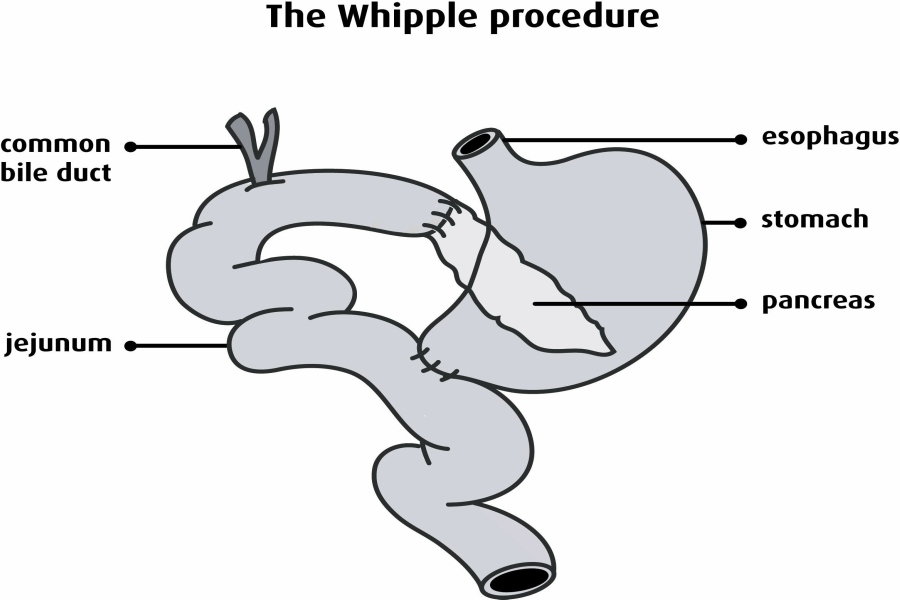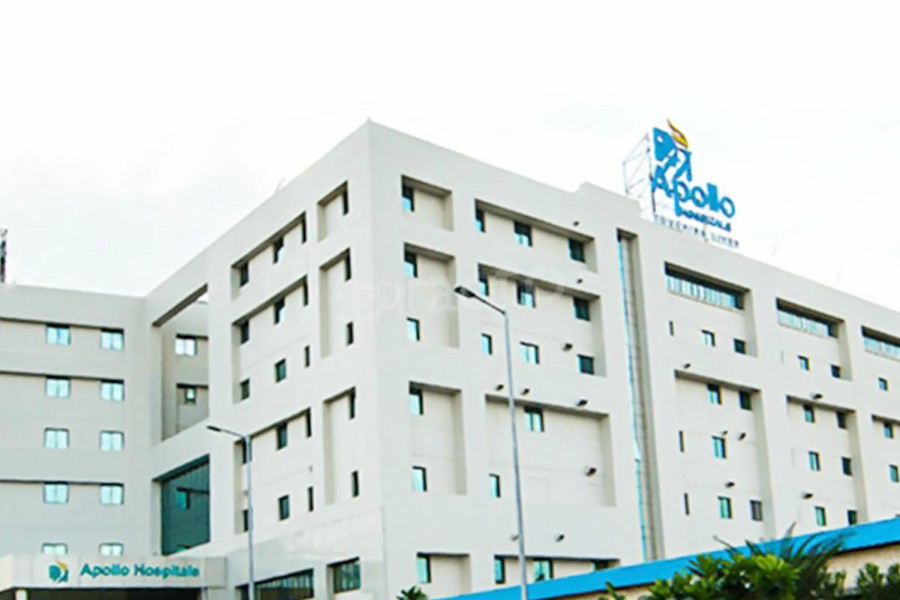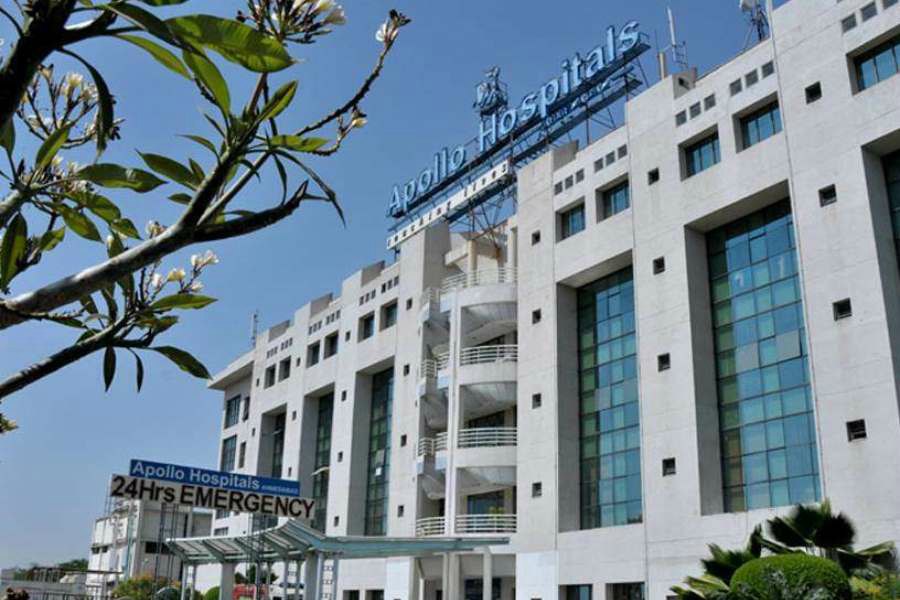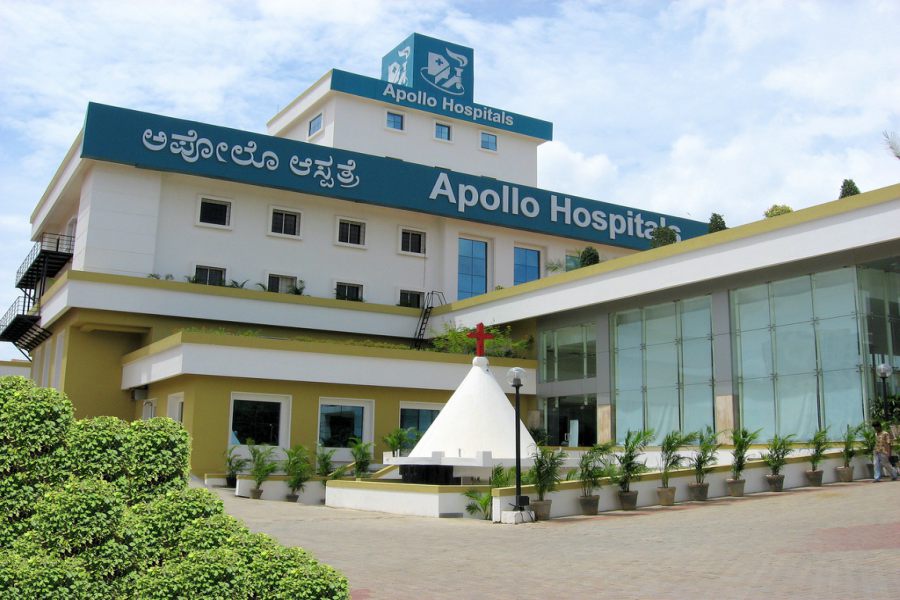
Do you have constant pain in the abdomen or back, digestive discomforts and have lost weight unintentionally? These may be some of the signs of pancreatic cancer.
Whipple procedure is a common treatment method for pancreatic cancer.
Overview
Whipple procedure, also known as pancreaticoduodenectomy, is a common surgical procedure to remove the pancreatic tumour, tissues and lymph nodes surrounding the tumour, and affected parts of the pancreas. This procedure also engages in the removal of the nearby structures such as the duodenum (part of the small intestine), the pylorus (lower parts of the stomach), part of the common bile duct and the gall bladder. Whipple procedure also involves the reconstruction of a large part of the gastrointestinal tract, making it complex and challenging.
A slightly different version of the Whipple procedure, known as the modified or pylorus-preserving Whipple, is also performed. This procedure is the same as a standard Whipple procedure, but it preserves the pylorus in its place.
ELIGIBILITY
The Whipple procedure can be performed for any of the following conditions:
- Chronic pancreatitis
- Pancreatic cancer
- Neuroendocrine tumours
- Duodenal cancer
- Cancer of the lower (distal) portion of the bile duct
- Ampullary cancer
- Small bowel cancer
- Trauma to the small intestine or pancreas
An individual with cancer restricted to the head of the pancreas, which has not spread to other areas of the body, and who is fit for the surgery can undergo a Whipple procedure. The person should not have any underlying medical conditions or factors which may affect the surgical process or the recovery process.
Malignancies in the pancreas, duodenum or bile duct are most often seen together, as certain enzymes pass through these complex connections to digest food in the duodenum. Therefore, during a Whipple procedure, these factors should also be considered to assess the spread of cancer.
PREPARATION BEFORE PROCEDURE
Before the surgery, the surgeon will assess several factors to determine and evaluate the best approach for the condition. Some routine tests and a few additional medical tests will be performed to assess the overall health to determine if the individual is fit for this complex surgery.
The surgeon will explain what will be done before, during and after the procedure; also, its potential risks and complications will be described. The surgeon will also inform if certain foods and medications may have to be stopped before the surgery.
An epidural catheter (or a spinal injection) may be placed apart from the local nerve blocks for the abdominal wall. An intravenous line (IV line) is also placed into the vein of an arm to inject fluid and medications, as required.
PROCEDURE TYPE
The various ways a Whipple surgery can be performed are:
- Laparoscopic surgery: This is a minimally invasive technique, in which small incision is made on the abdomen to insert a probe with special instruments, including a camera. This helps to obtain a clear vision of the abdomen to perform Whipple procedure with surgical tools.
- Open Surgery: This is a commonly performed procedure. Incisions are made in the abdomen to access the pancreas and perform the procedure.
- Robotic Surgery: It is a new minimally invasive procedure. In this method, the surgeon controls the mechanical device (or robot) attached to surgical tools with a console nearby. The advantage of this method is that the robot can reach the corners and tight spaces where a human hand cannot reach.
ABOUT PROCEDURE
After the anesthetic effects begin, another tube called the urinary catheter is placed into the bladder through the lower openings to drain urine during and after the procedure.
During a standard Whipple procedure, the head of the pancreas, gallbladder, duodenum, pylorus and the nearby lymph nodes are removed. Following this, the remaining pancreas and other digestive organs are reconnected for normal functioning of the gastrointestinal tract.
After completing the procedure, the surgeon will close the incisions made with stitches or staples and cover it with a surgical bandage.
POST-PROCEDURE CARE
After the surgery, the patient will be shifted to the post-surgical care unit, where the healthcare professionals will monitor the progress, vital signs and signs of infection or complications, several times a day.
The diet can slowly return to normal based on the tolerability and condition. Most individuals usually start walking immediately after the surgery.
In some complex cases or in the presence of specific medical conditions, the patient will be shifted to the Intensive Care Unit (ICU) after the procedure. Here, nutrition, medications and fluids will be provided only through the IV line.
Most often, patients receive adjuvant therapy before or after surgery. These include radiation therapy, chemotherapy, or both.
RECOVERY TIPS
Some of the following tips may help in rapid recovery after a Whipple procedure:
- Go for regular follow-ups after discharge, as advised by the surgeon
- Do not remove any bandages for at least one week after the surgery
- Take showers with only mild soaps and water
- While washing, gently rub around the surgical site
- Eat several small meals instead of three big meals
- Avoid fatty foods
- Drink plenty of water and fluids
- Try different foods to see what the body can tolerate
- Do not lift anything weighing over a few kilograms for a minimum of six weeks
FACTORS AFFECTING COST
Whipple surgery is a complicated procedure causing mental and financial burden on an individual and their family. The cost depends upon:
- The anaesthesia used
- The technique used
- The technology involved
- The expertise of the surgeon


 Best Hospitals
Best Hospitals












